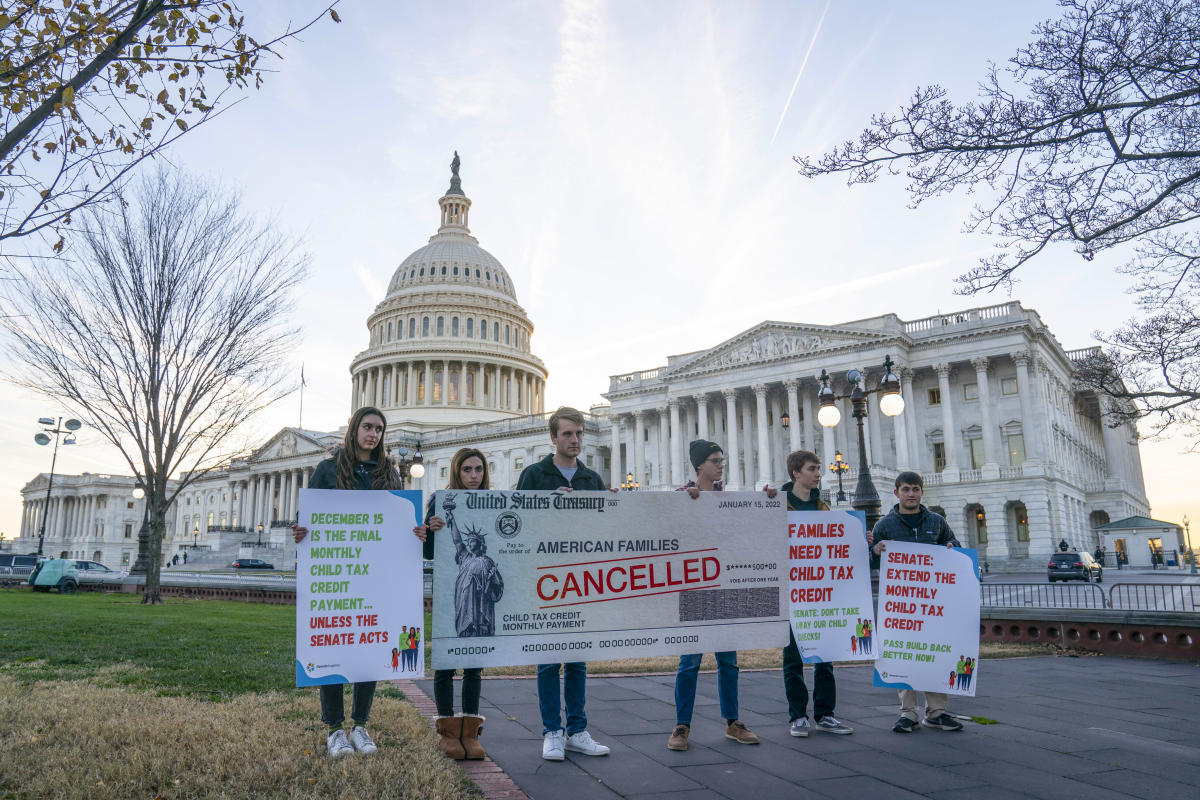
Over 36 million families got their sixth—and final—monthly child tax credit advance back in December.
Those checks were a temporary measure that was provided by the $1.9 trillion American Rescue Plan that President Joe Biden signed into law in March 2021. For one year, the economic aid package upped the child tax credit from $2,000 to $3,000 per dependent ages 6 to 17, and from $2,000 to $3,600 for children age 5 or younger. Unlike previous years, up to half of that money could come early through monthly $250 or $300 tax advances (a.k.a. checks) sent between July and December.
Eligible parents who received the monthly advances will still get up to half the total credit once they file their 2021 tax return this year.
But what will replace the lapsing benefit? As of right now, the 2022 child tax credit (which you would get when you file in 2023) is set to revert back to $2,000 for each dependent age 17 or younger. The benefit is set to revert because Congress didn’t pass an extension of the enhanced benefit, nor an extension of the monthly payments.
That said, the IRS has yet to release the income cutoffs for the 2022 benefit. Not to mention, there’s still a chance Congress could act before the child tax credit reverts back to its pre-2021 payment level.
Democratic leadership continues to push to pass the Build Back Better plan—a reconciliation bill they’ve been working on for over six months. In its latest form, the bill would extend the 2021 child tax credit for another year. However, moderate Sen. Joe Manchin (D-W.Va.) remains opposed to both the size of the bill and the idea of extending the monthly child tax payments. Passing a reconciliation bill in the face of united Republican opposition would require the support of every Democratic senator. After all, Democrats hold the 50-50 split chamber only through a tie-breaking vote from the vice president. So without Manchin’s support, Democratic leadership is unlikely to pass the bill.
Before publicly coming out against the bill, Manchin reportedly told the White House he would support the continuation of the monthly child tax credit payments only if it included a “work requirement” for parents and capped payments to families with an income under $60,000.
If Manchin got his $60,000 income cap, millions of Americans would lose out on the benefit.
The enhanced child tax credits ($3,000 for children ages 6 to 17, and $3,600 for children age 5 or younger) went out this year to single filers whose modified adjusted gross income was less than $75,000 per year and couples filing jointly who earned up to $150,0000. Earners above that could still get a $2,000 credit, however, were completely phased out at an income of over $200,000 per single filer and over $400,000 per household.